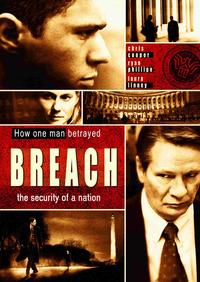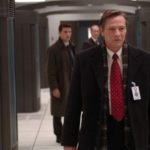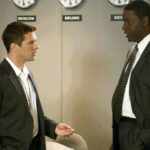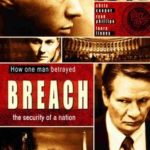The paradox of intelligence services is contained within the logic of their operations: they are commissioned to save and promote freedom by preserving and discovering secrecy. So it is that people who play the game of trading secret information for whatever motive (from idealism to material gain to being the victims of blackmail) gain in the currency of transaction but are punished the more severely when they are exposed. The knack is not to sail too close to the wind, and indeed to observe protocol by being a sleeper, to “hide in plain sight” as the saying goes.
Thus the real life Robert Hanssen survived as a double agent for 22 years before eventually being jailed for 15 consecutive life sentences in 2001, in part because of sexual predelictions (a taste for rough) that run contrary to his avowed and devout Opus Dei Catholicism. Even so, he is a rare example of a traitor who went undetected for many years and the impact of whose endeavours is still classified.
But of course, for every mouse there is a cat or two. Breach is the story of his detection and capture, though only the evidence part. The inadmissible stuff found by secret service about Hanssen’s KGB links could not secure a conviction, so he had to be caught red-handed.
A green young clerk, Eric O’Neill (a young Ryan Philippe, recently in The Shooter), is put on his tail by the FBI bureau chief Katherine “Kate” Burroughs (Laura Linney – not that many female spooks, you would suspect, Stella Rimington notwithstanding) to spot any unusual circumstances and, ultimately, the vital strand of evidence.
This in due course he does, albeit with divided loyalties, since he is strongly drawn towards a charismatic boss who while severe took in O’Neill and his wife Juliana (Caroline Dhavernas) as if they were his own children.
Breach works by virtue of subtly downplayed direction by Billy Ray. Ray’s strong attention to detail bears fruit, both through period and focused conversations that ring true and probably bear higher than the average content of reality. This is a neo-realistic depiction of events in the form of studied drama, without the look and feel of a fly-on-the-wall documentary with blurry hand-held cameras, and frankly much the better for it. In feel, it is more akin to the sly and subtle adaptations of Le Carré espionage novels, for which the BBC is rightly renowned, where each decision is almost like a move on a chess board.
Most of all Ray’s film succeeds through a mesmerising performance from the excellent Chris Cooper, an actor I have rated highly for some time (see reviews of August: Osage County and American Beauty.) I doubt there are man more compelling American actors on the current circuit.
This is a character in which you can believe severally and collectively as a loyal member of the agency, a family man, a traitor and a repressed individual who fastidiously invokes secrecy as the default way of life. That he has two or three lives is entirely credible, though his authority and perhaps understandable paranoia seem like second nature.
Cooper pulls off this fine balancing act with a bravura display of subtle and studied acting. The final shot, in which a haggard Hanssen sees Eric for a final, fleeting moment and says, “pray for me,” is as heartfelt and powerful as Paul Muni‘s final line, “I steal,” in I Am A Fugitive From A Chain Gang – all the more since Hanssen’s words are sincere. In that moment is communicated that he knows the game is up and he must take his punishment, but that he does not blame O’Neill for playing the game or doing his job.
Breach is a fine, intelligent, articulate and under-praised movie, maybe unpopular Stateside since it portrays success by an enemy of the USA, even if the focus is on the capture of said spy. I commend it warmly.







